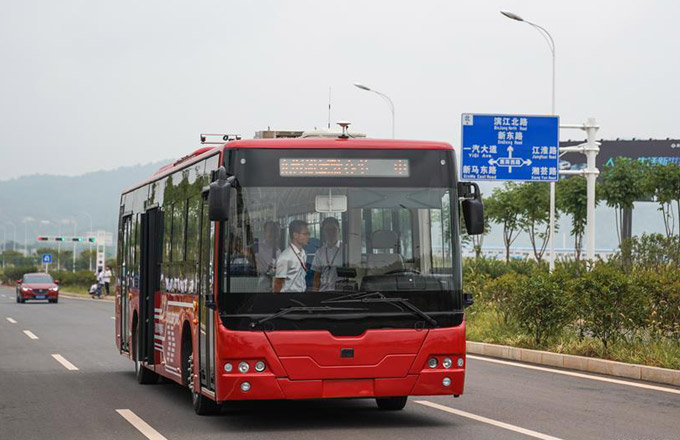Residents pitch in to burnish coastal city's clean reputation
Keeping beach clean
At the seashore in Beidaihe district, the beach remains clean despite the massive number of visitors. Zhang Li, head of the district's urban management office, said a large number of beach cleaners were put to work long before the summer vacation. After the tide of visitors arrived, they used a smaller number of cleaners to regularly tidy the beach.
The city was also mapped into a digital grid-an overlay in which every road and every section of the beach are assigned to four people at various levels-from municipal leaders to sanitation workers, according to Xie Xiaobing, deputy director of the city urban management office. City officials are required to walk through the whole area they're in charge of at least once a month, while district-level officials have to inspect twice monthly and the sanitation workers must clean the area every day.
Once a problem is identified, the people in charge of fixing it can be found by simply clicking the screen of the monitoring center, Xie said.
Another impressive move was to start the "All in City Washing" activity, in which residents are called upon to clean the city on the afternoon of the last Friday of every month from April to October. Later, people voluntarily started heading into the streets to clean on every rainy day to save water.
"Many people participated, from the Party chief to ordinary residents," said Zhou, the neighborhood committee director. "For many citizens, rain is the order. It is not an administrative order, but it has been the norm."
Employees volunteer
Zheng Lei, a human resources manager at Ugrant, a retail chain, said many employees at the company volunteer for cleaning because they have gradually found that both their living conditions and relations with colleagues and neighbors improved. It was a good chance to educate kids, she added.
The company has encouraged its more than 3,000 employees to join the cleaning effort.
As for the sea, the Qinhuangdao Maritime Safety Administration listed seven situations in which vessels might discharge pollutants, said Wang Yunpeng, director of the administration's dangerous pollution prevention division.
The administration uses its rich experience to assess the risk of pollution discharge for more than 10,000 arriving and departing vessels at the port every year. For instance, they will check a ship if they find the volume of remaining pollutants does not match the figure calculated according to the distance it traveled, as well as other conditions.
Zhou said that this year she found an increasing number of people from other places living in her neighborhood, especially elderly people.
"At first I thought they were visiting their children. But later I found that some people do not have children there. They simply chose the city as the place to spend the rest of their life, because of the city's pleasant appearance, the clean ocean and the warm community."






















